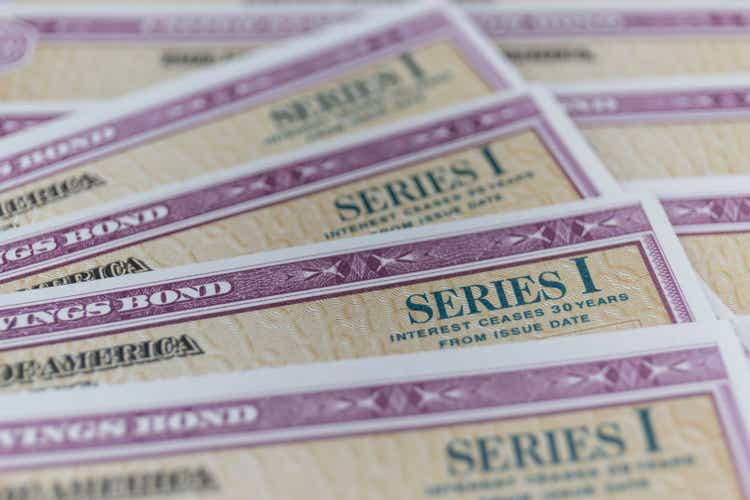
jetcityimage
We’ve been back and forth on the question about whether it’s time for fixed income. While there are arguments for credit, we still believe that longer durations are a problem for investors. ETFs like the iShares Short-Term Corporate Bond ETF (NASDAQ:IGSB) have this duration problem. The iShares Floating Rate Bond ETF (FLOT) is maybe a better pick (better than cash), for investors concerned about the current economic environment and wanting a safe haven.
Thinking About Asset Classes
We’ve been focused on the dangers of duration over our last several articles. The concern is simple: if you have duration, you may have hidden from equity risks, but you’ll still see value destruction in fixed income. Investors shouldn’t treat credit as automatically free of risk. Yield is fine, but you want it to flex to economic conditions when we have inflation and interest, and the trade-off between them as monetary authorities wage their war remains uncertain. Even institutions may be indiscriminate in their escape from equity risk.
There are definitely plenty of places in the equity world that directionally are less favoured than fixed income. Indeed, even in absolute terms arguments can be made for credit. We recently looked at infrastructure ETFs, and we ended up passing on them. Wasn’t even a directional concern, it was valuation. Earnings yield on infrastructure ETFs were only marginally better than safer corporate bonds, where capacity for price increases can be limited in infra. There are plenty other individual stocks on the market that investors inexplicably hold even though they are on the wrong side of every conceivable dynamic, yet they have earnings yields that barely break 5%.
However, markets typically respond to recessions by speculating that rates will fall in response to them. This would favour credit and makes it a good autopilot reallocation from equities when recessions come in. But with inflation being a bigger concern and higher rates being the cause of a recession, the duration issue will matter because falling rates won’t be there to make those stable cash flows from bonds attractive.
IGSB Breakdown
Enter IGSB, which is an investment grade bond ETF for US corporates. Credit risk is not something we worry about, again it’s mainly duration. Looking at the detailed financials we can get the average portfolio duration and it is almost 3 years, which means approximately a 3% decline for every point increase. That isn’t low, and it’s driven by quite low coupons at around 3%. YTD declines are about 4.7%, meaning that markets seem to have priced in only a bit more than a 1.3% rate increase so far since the beginning of the year, even though we’ve already had 2% reference rate increases with more assuredly coming as inflation labour markets remain hot. The bonds in the ETF are trading slightly below par at around $96, so YTMs are averaging a little more than 4% at least.
Conclusions
Still, a 4% weighted average YTM on the contained bonds isn’t great. The bonds are mostly A rated, so clearly investment grade, but given that reference rates are going to be at least 2% for the foreseeable future, and with unemployment still being really low perhaps more, in our view that doesn’t imply a great risk premium at less than 2%. It’s not bad, but not great, and we think it represents the fact that IGSB could still go lower if rate increases really need to push further than markets expect before the employment situation normalises.
With the quite meaningful duration it still has and the near term horizon for rate increases, investors are hazarding cash here with a pretty non-consensus view that rate hikes will suddenly stop (they probably won’t). We understand the appeal of fixed cash flows for retirees and investors looking for safety, but just buy REITs instead. In the US they can be relied upon to stick to their dividends, especially in a garden variety recession.
While we don’t often do macroeconomic opinions, we do occasionally on our marketplace service here on Seeking Alpha, The Value Lab. We focus on long-only value ideas, where we try to find international mispriced equities and target a portfolio yield of about 4%. We’ve done really well for ourselves over the last 5 years, but it took getting our hands dirty in international markets. If you are a value-investor, serious about protecting your wealth, us at the Value Lab might be of inspiration. Give our no-strings-attached free trial a try to see if it’s for you.



Be the first to comment